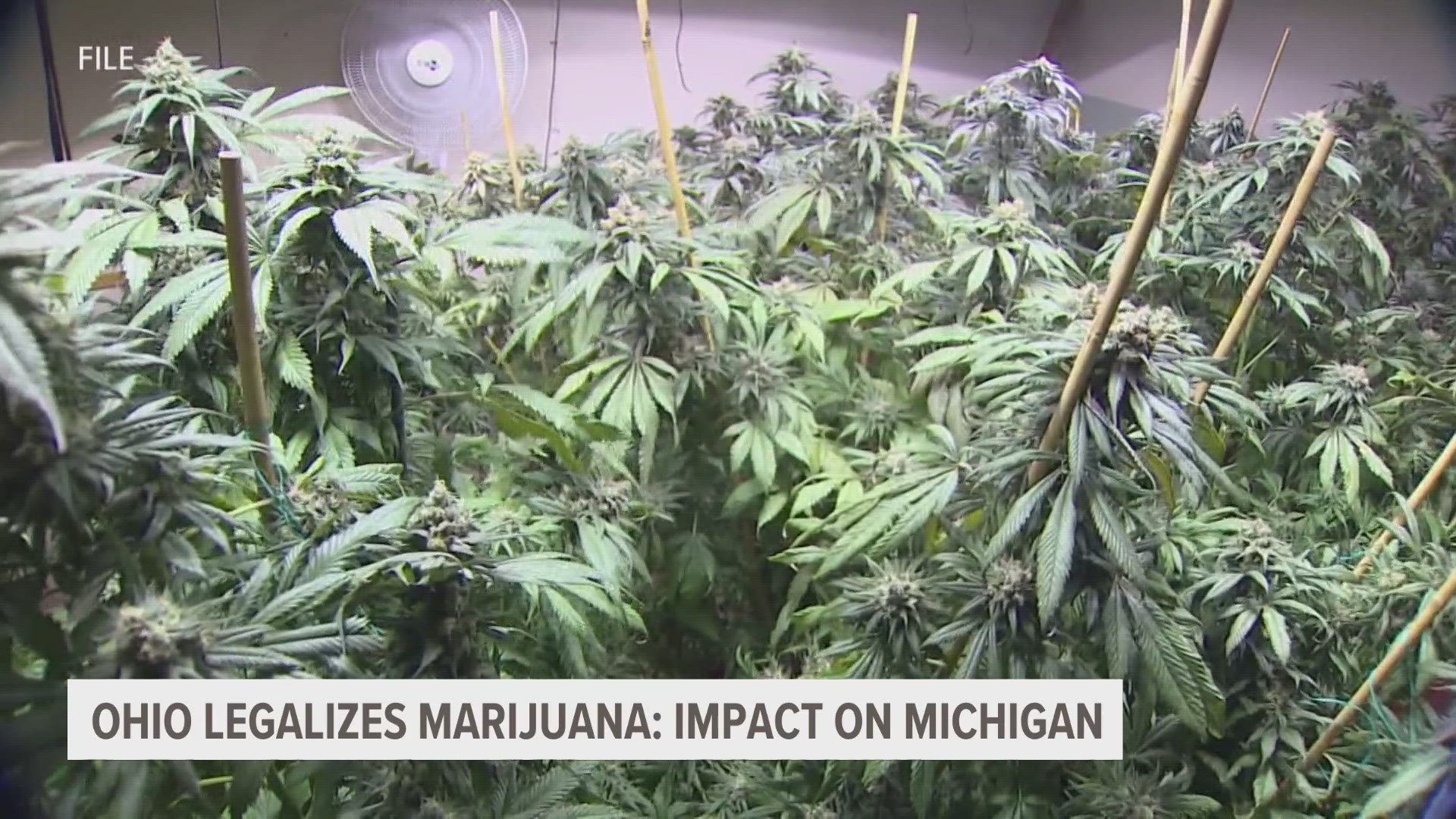MUSKEGON, Mich. — A pair of neighbors and long-time college football rivals will now compete in a different field following Tuesday’s election: recreational cannabis.
Ohio, the Buckeye State became the 24th in the union to compromise on cannabis. The ballot initiative won broad support from voters at the polls Tuesday.
While Ohio lawmakers still have to hash-out the roll-out there, a process which, provided it’s allowed to move forward, could occupy the better part of a year or more, the language of the law appeared to have been loosely based on the so-called ‘Michigan Model.’
How’s that working out?
“If we're going to set the pace and what cannabis looks like. We need to show the public what it looks like,” Steve and Karen Kekelik suggested.
The pair owns and operates IndiGro, a cannabis microbusiness with ‘roots’ in Muskegon.
“We wanted to bring that hometown, grown here, sold here, farm-to-table or as we call it, seed-to-sale approach,” Steve related during a Thursday interview at the Clay Avenue dispensary. “Honestly, the town has done nothing but embraced (us).”
And, they’ll tell you, it’s going well.
Despite their success and, more broadly, the intoxicating year for Michigan tax revenues—nearing a record $300-million, according to recent disclosures—the state’s stable of dispensaries and marijuana grow-ops, experts suggest, face several key barriers: an inability to sell across state lines on account of the federal prohibition, high taxes and, absent financial reforms, a lack of banking options to utilize in both transactions and financing.
“It does present some challenges,” Steve responded. “Our regulators here in Michigan take an approach of education before regulation… now we're having these pains of going back through.”
“There's that initial roller coaster, the enthusiasm… and then kind of a bottoming out,” Tyler Thiele, a VP with Anderson Economic Group and an expert on the ‘green economy’ related via Zoom Wednesday. “The market was so open at first that we ended up with dispensaries oversaturated in some areas.”
“Certainly, legalization in Ohio will affect the downstate market a little bit in Michigan,” she explained. “As all of that adjusts in the market, then finally, a more healthy plateau… It kind of gives the opportunity for those more well established in Michigan to set the price, so to speak. Ohio will kind of have to follow the trends.“
Meaning the grass may still be greener on this side of the state line, given Michigan’s more established market.
“They’re still going to buy weed when they're here,” Karen added. “We don't see it being a huge adverse effect.”
As an added plus, Karen predicted the move would also ratchet-up the pressure on federal lawmakers with regard to the effort to achieve national normalization, long the industry’s proverbial ‘holy grail.’.
The approval, Steve suggested, could also function as a teachable moment.
“The cannabis industry as a whole is still very infantile… We're still figuring out where the bottom is, where the top is,” he related. “There's still a lot of learning to do and still a lot of onus on the industry to push it in the right direction.”
►Make it easy to keep up to date with more stories like this. Download the 13 ON YOUR SIDE app now.
Have a news tip? Email news@13onyourside.com, visit our Facebook page or Twitter. Subscribe to our YouTube channel.
Watch 13 ON YOUR SIDE for free on Roku, Amazon Fire TV Stick, and on your phone.

